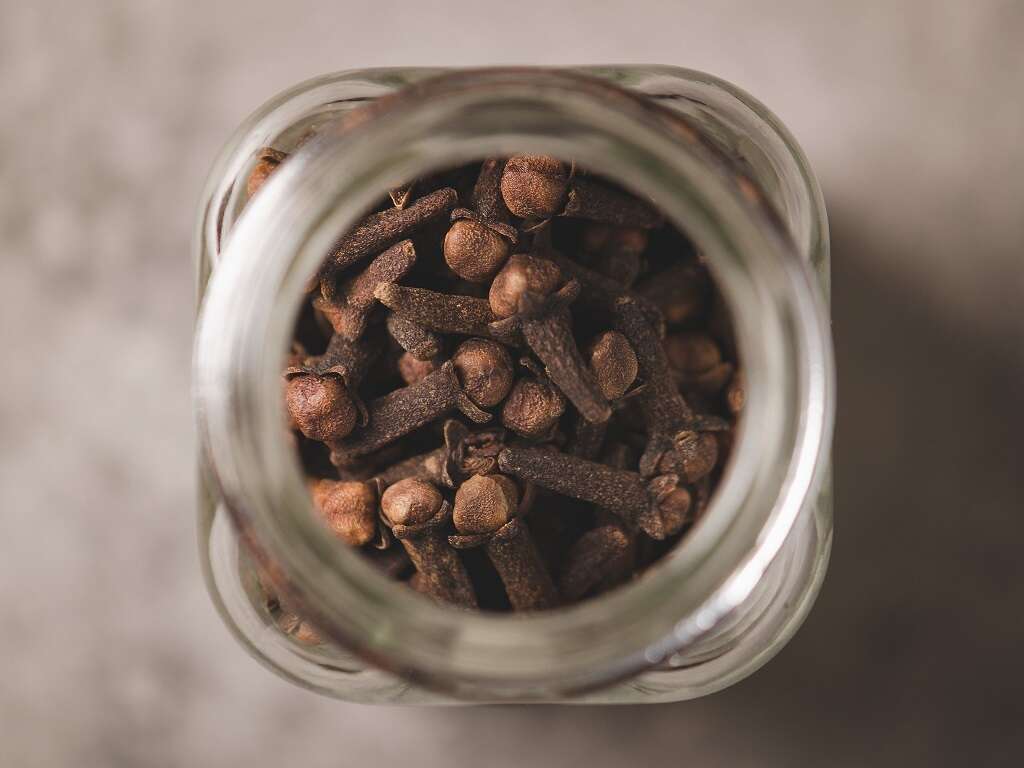10 Health Benefits of Buckwheat
Buckwheat has been seen in raw food diet recipes and products such as noodles and buckwheat flour. Although the name sounds similar to wheat, it is not related to wheat. It is not a grain or cereal, but made from the seeds of a flowering plant. It is usually soaked in water and becomes glutinous in consistency.
Buckwheat is gluten-free and has many benefits to human health. It is low in glycemic index and a good source of protein, fiber, magnesium, copper, folate, phosphorus, and manganese. With the number of nutrients it has, the body has many benefits when it is consumed.
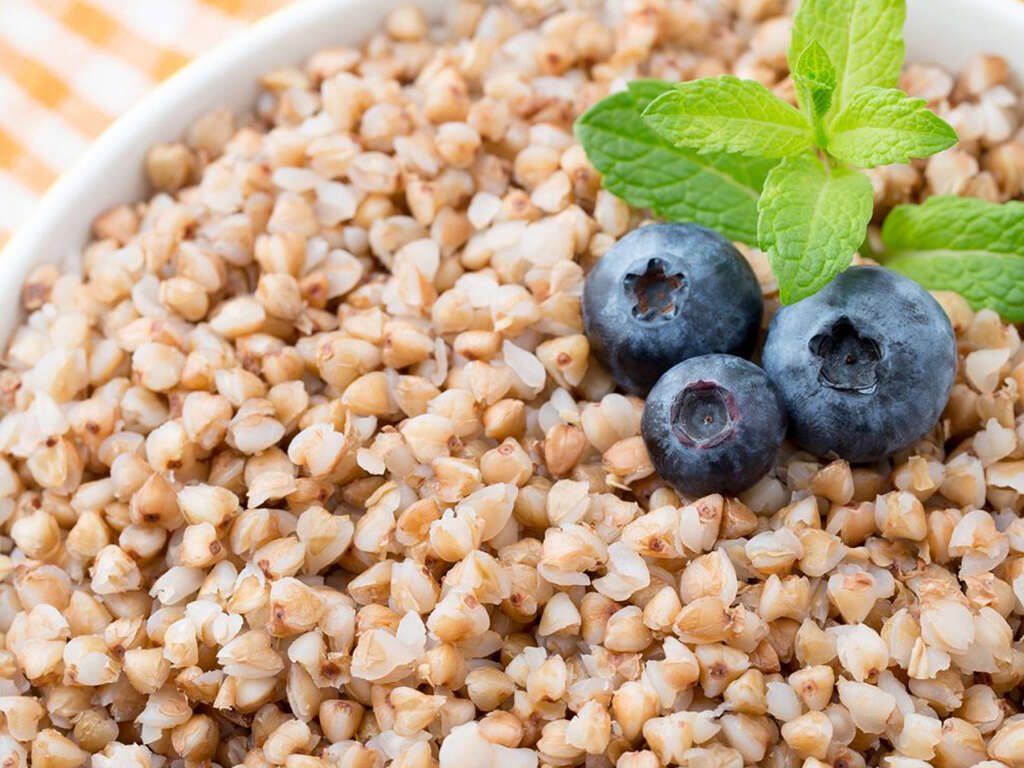
Health Benefit Of Buckwheat #1: Contains Antioxidants
Antioxidants are an important factor in fighting the body from oxidative stress and free radicals, all of which contribute to the risk of obtaining diseases. Buckwheat provides more antioxidants than any other cereal grain. It is essential to help protect against disease. Buckwheat is a great source of antioxidants as it contains quercetin, rutin, and more.
Quercetin is found in plant foods and is an antioxidant that has also anti-inflammatory and anti-cancer properties. It is a major constituent of the flavonoid intake and may help fight several chronic degenerative diseases. Since buckwheat contains this type of antioxidant, adding this ingredient into the diet has great health benefits.

Health Benefit Of Buckwheat #2: Plant-Based Protein
A plant-based diet has been an ongoing choice for individuals. Buckwheat is a plant-based protein that is rich in the amino acids and high in the amino acid scale. One cup of buckwheat has about 22 grams of protein. Buckwheat provides protein and many nutrients that are associated with it.
Rather than proteins found in animals, plant-protein tends to be lower in calories and low in fat which helps with weight loss and cholesterol levels. Numerous studies show that it can be beneficial to help prevent diabetes, cardiovascular disease, and help longevity. Adding this food to the diet has many benefits.
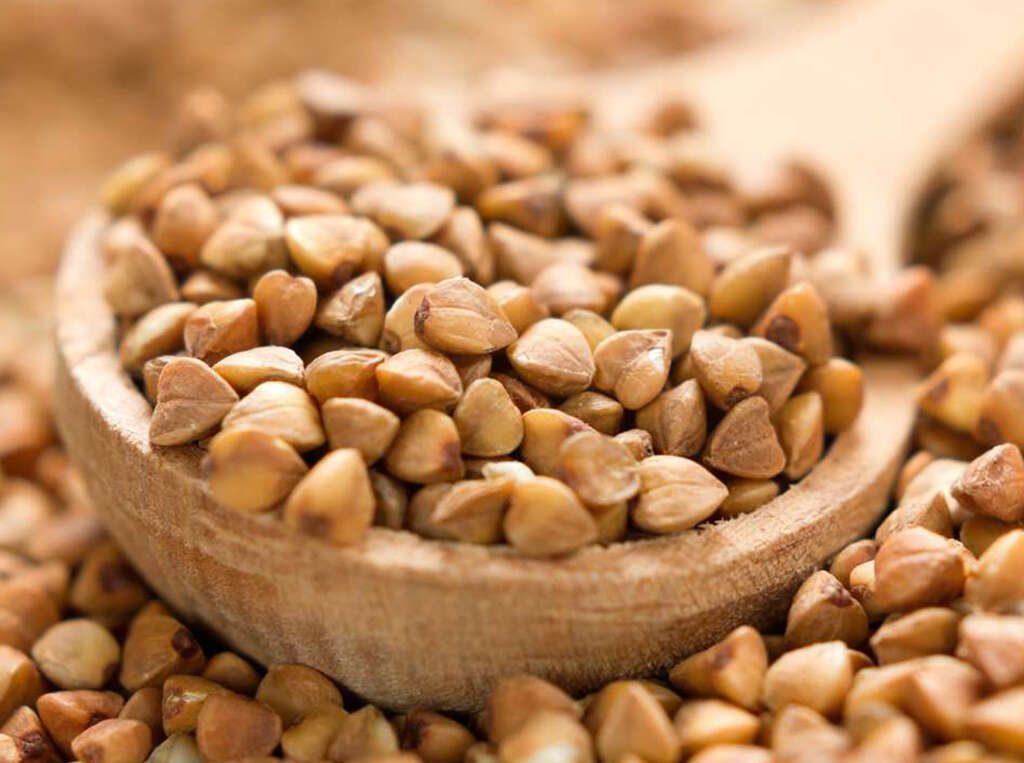
Health Benefit Of Buckwheat #3: Improves Digestion
All disease begins in the gut and the role of the digestive system is critical to good health. Buckwheat is a great digestible plant-protein and high fiber food. It can even help prevent digestive disorders as this is a superfood.
In one cup of buckwheat, it contains 17 grams of dietary fiber which is about 70% of the daily requirement. It is filling and contains the needed nutrients vital to good health. A study done in Korea tested animals and the effects of the digestive tract with consuming buckwheat. They observed higher antioxidant activities in the liver, colon, and rectum. More human studies should be made in confirming buckwheat’s direct role in helping the digestive system.

Health Benefit Of Buckwheat #4: Lowers Cholesterol And Improves Heart Health
As heart disease is the number one cause of disease worldwide, people aim to consume foods that help protect the heart. Buckwheat contains phytonutrients and fiber that help lower cholesterol levels and contribute to good heart health. Consuming a cup of buckwheat a day will help lead to a healthy heart.
In clinical studies, the findings suggest that consuming buckwheat helps lower cholesterol levels and helps with blood pressure. In a study done with eight hundred people in China, blood pressure was assessed with those eating oats and buckwheat for three consecutive days. The findings showed that oat and buckwheat consumption helps prevent and treat high blood pressure and high cholesterol.

Health Benefit Of Buckwheat #5: Lowers Blood Pressure
Healthy blood pressure is essential to good heart health. Frequent exercise, a heart-healthy diet, and lifestyle are all important to lower blood pressure. Buckwheat contains the antioxidants that help lower blood pressure.
Buckwheat contains quercetin which has shown to decrease blood pressure. Research has shown that an intake of quercetin in plant-based foods is related to lowered risk of cardiovascular disease. Blood pressure is decreased with antioxidant effects and is improved. In a study done in Korea with rats, it showed that buckwheat had an effect on lowering blood pressure. After feeding the rats for six weeks, there was a significant decrease in blood pressure.
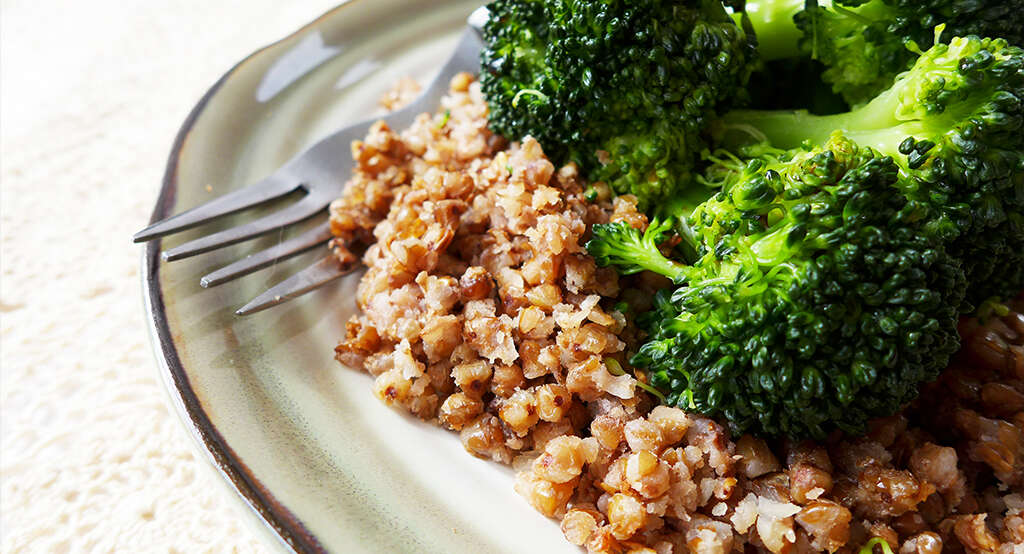
Health Benefit Of Buckwheat #6: Gluten-Free
Those who are becoming intolerant to gluten consume foods that are gluten-free. Whether it is due to a medical condition such as celiac or an intolerance to gluten, buckwheat is surprisingly gluten-free. What is also amazing is that it is similar in appearance, texture, and taste to bread that has gluten. It is a safe food for those who are on a gluten-free diet.
Buckwheat is a seed that is also made into flour. This can be an alternative ingredient used instead of regular flour. It also has the needed minerals, vitamins, fiber, and protein that has many health benefits as well.
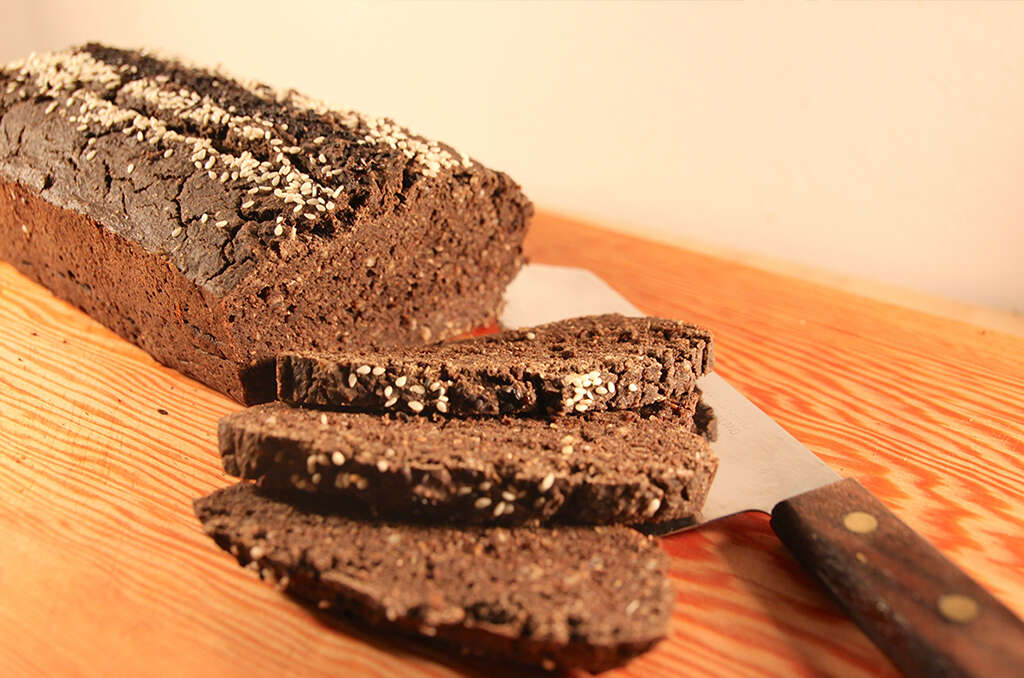
Health Benefit Of Buckwheat #7: Prevents Diabetes
With the rate of obesity going up, so is the risk of those obtaining diabetes. Consuming this glutinous food can help prevent diabetes. Something rarely heard of, but buckwheat is low on the glycemic index. It is low on how much it raises blood glucose levels within a certain time. It is absorbed into the blood slowly and will provide the needed energy. This helps with blood glucose levels.
Buckwheat has shown to lower blood sugar levels. In a study done with diabetic patients that consumed buckwheat in two months, the blood sugar control was improved. In another study, buckwheat was shown to lower serum glucose concentration by 12-19% after ninety to a hundred and twenty minutes.
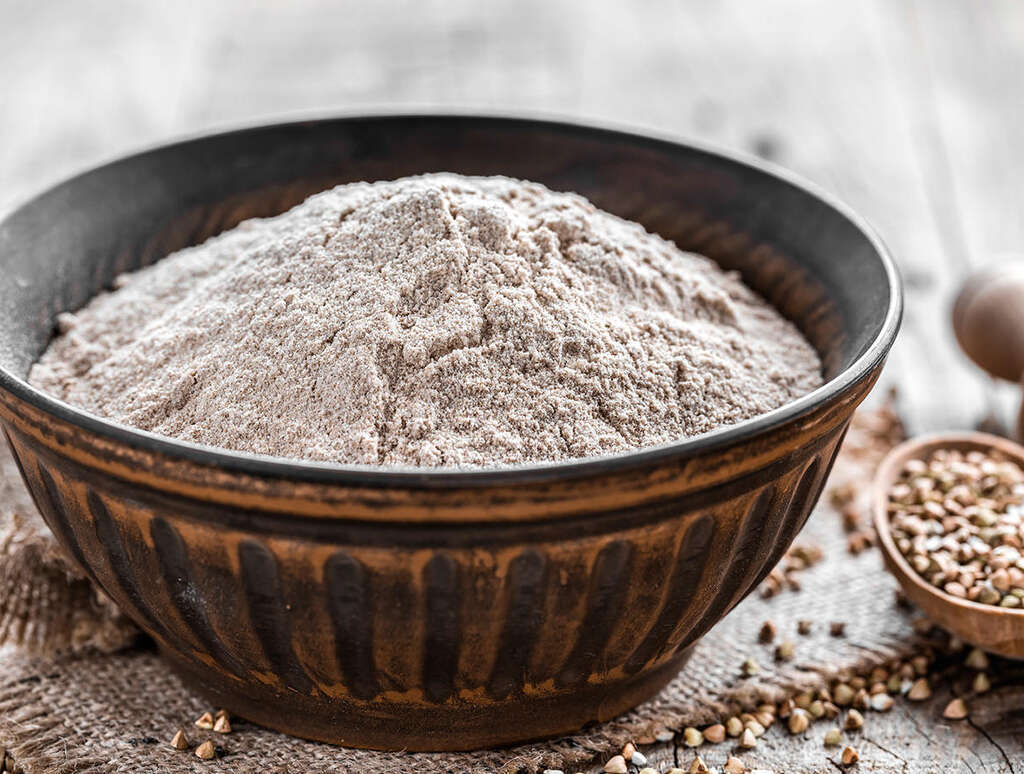
Health Benefit Of Buckwheat #8: Helps With Mood
Buckwheat may be very effective when it comes to the mind and brain. Buckwheat contains tryptophan which helps release serotonin. Serotonin is a chemical found mostly in the digestive system and is essential to affect a person’s mood. The flavonoids in buckwheat can also improve mood.
Buckwheat also contains calcium and magnesium. Both are related to helping with achy muscles and relaxation. The effects it has can also lower blood pressure which helps relax the body. One study with rats showed that the decrease in blood pressure also helped their activity. More studies need to be done with the consumption of buckwheat.
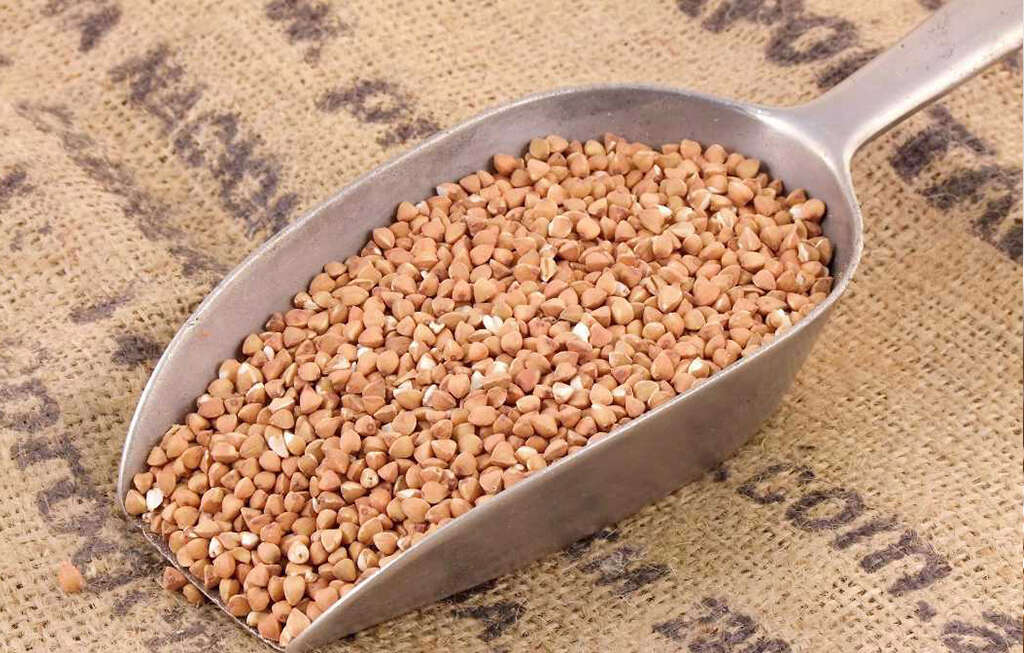
Health Benefit Of Buckwheat #9: Protection Against Breast Cancer
Breast cancer prevention can be made with healthy habits such as limiting alcohol, not smoking, staying physically active and reducing stress. There are foods that may prevent or cause a high risk in obtaining this disease. Many foods can help prevent the risk of breast cancer. Buckwheat is one of them. The number of antioxidants, fiber, and other nutrients help to fight and prevent this deadly disease.
In one study, the consumption of buckwheat has shown to have anti-tumor properties on breast cancer. Researchers wanted to investigate how buckwheat had anti-proliferative effects on breast cancer cells. It was shown that there was cell shrinkage and made cell changes.
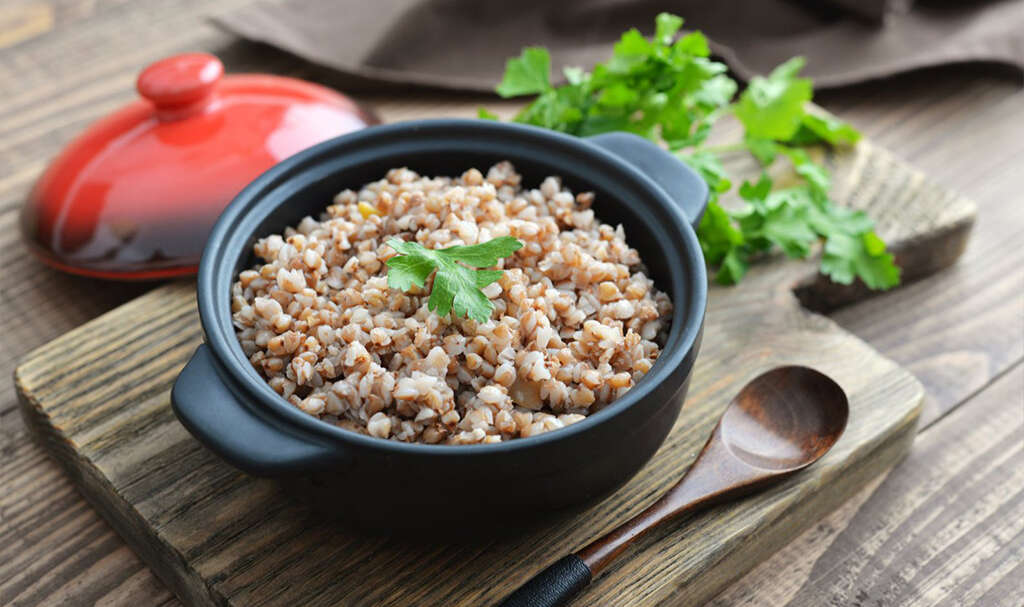
Health Benefit Of Buckwheat #10: Helps With Healthy Bones
Buckwheat contains two nutrients essential for good bone health which are manganese and magnesium. Manganese is important because it is a trace element that affects bone health. It acts as an enzyme for building bones and actively involves forming connective tissues. One cup of cooked buckwheat has about 2 milligrams, more than what is recommended per day.
Magnesium is also contained in buckwheat. It is an essential mineral that helps with bones, cardiovascular system, and other functions. Magnesium is important for bone formation and has been associated with greater bone density, improved bone formation, and lowers the risk of osteoporosis in women after menopause.











